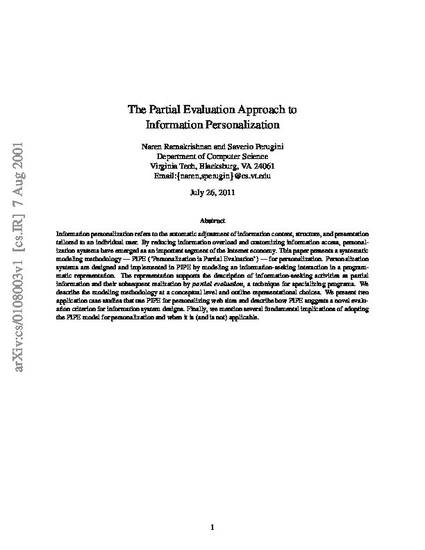
Information personalization refers to the automatic adjustment of information content, structure, and presentation tailored to an individual user. By reducing information overload and customizing information access, personalization systems have emerged as an important segment of the Internet economy. This paper presents a systematic modeling methodology— PIPE (‘Personalization is Partial Evaluation’) — for personalization. Personalization systems are designed and implemented in PIPE by modeling an information-seeking interaction in a programmatic representation. The representation supports the description of information-seeking activities as partial information and their subsequent realization by partial evaluation, a technique for specializing programs. We describe the modeling methodology at a conceptual level and outline representational choices. We present two application case studies that use PIPE for personalizing web sites and describe how PIPE suggests a novel evaluation criterion for information system designs. Finally, we mention several fundamental implications of adopting the PIPE model for personalization and when it is (and is not) applicable.
- Information retrieval,
- programming languages
Available at: http://works.bepress.com/saverio_perugini/22/
